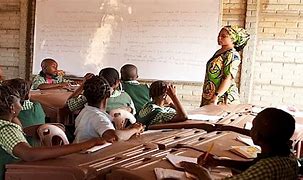The Federal Government has highlighted the critical role of local languages in early childhood education, advocating for their use in classroom instruction for young learners.
Minister of State for Education, Suwaiba Said Ahmad, made this call during the official dissemination of Nigeria’s National Reading Framework (NRF) on Thursday.
The event gathered stakeholders in the education sector to discuss strategies for enhancing literacy and aligning national educational standards with global goals.
Professor Ahmad emphasized that the NRF is designed to enhance reading proficiency among children, aligning with the Sustainable Development Goals (SDGs) and President Bola Tinubu’s education policy.
READ ALSO: EU, UNICEF, Engage Education Stakeholders To Accelerate Schools Enrollment In Jigawa
She stated, “The NRF emphasizes using the language of the immediate environment for early-grade classroom instruction and community-based reading practices across the country.
This commitment to inclusivity ensures that we provide quality education, particularly for children with diverse learning needs.”
The Minister also stressed the importance of understanding the NRF and its implementation guidelines. She urged all stakeholders, including educators, policymakers, and community leaders, to ensure its successful enactment.
Efforts in curriculum development were highlighted as a priority, with content being streamlined and adapted to meet national priorities.
“Concerted efforts are being made in curriculum development to streamline and adapt the content to national priorities, ensuring relevance and practicality.
READ ALSO: Governor Adeleke Imposes Curfew In Osun Warring Communities
Equally important is teacher training, which focuses on equipping educators with the skills and passion needed to meet modern demands, especially in science and technical fields,” she added.
Mrs. Ahmad commended the collaborative efforts of various stakeholders, including ministries, agencies, and international partners such as USAID, UNICEF, and the FCDO.
She recognized their support as essential in addressing challenges in curriculum development and teacher training.
“Our collective efforts aim to improve literacy across the nation and equip every learner with the tools they need to thrive,” she concluded.

